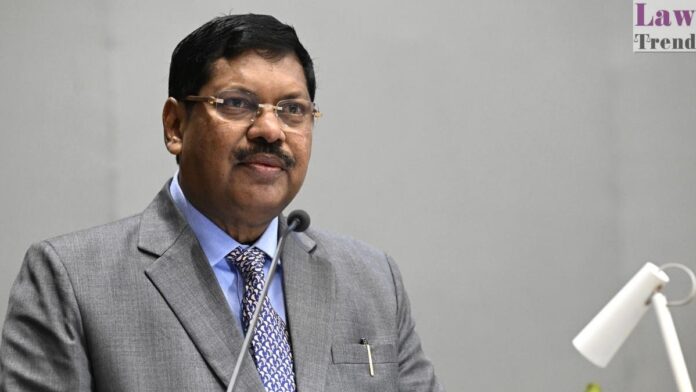Chief Justice of India B.R. Gavai, who completes his tenure on November 23, delivered an emotional farewell on Friday, saying he was stepping down “with a full sense of satisfaction and contentment” after nearly four decades in the legal profession.
The farewell ceremony took place before a packed ceremonial bench that included CJI-designate Justice Surya Kant and Justice K. Vinod Chandran. As tributes poured in from judges and senior members of the Bar, Justice Gavai paused several times, visibly moved.
“After listening to all of you, and particularly the poems of the Attorney General and Kapil Sibal, my voice is choking with emotions,” he said. “When I leave this courtroom for the last time… I leave this court with the sense that I have done whatever I could have done for this country. Thank you very much.”
Justice Gavai, the second Dalit and the first Buddhist to become CJI, assumed office on May 14 for a little over six months. “When I joined the profession in 1985, I entered the school of law. Today, as I demit office, I do so as a student of justice,” he said.
Reflecting on a journey that took him from the Bar to the Bombay High Court and then to the Supreme Court, he said every public office should be seen not as a seat of power but as a chance to serve. His judicial philosophy, he noted, was deeply shaped by Dr B.R. Ambedkar, whom his father had closely worked with.
“I always tried to balance fundamental rights with the Directive Principles of State Policy,” he said, adding that many of his judgments sought harmony between constitutional freedoms, sustainable development, and environmental protection.
Quoting the famous principle that a judge should “not alter the material but may iron out the creases,” he said it was the lodestar for his approach. He also stressed his belief that judgments should be written simply, “for the end consumers,” rather than as academic exercises.
Justice Gavai spoke warmly about his long engagement with environmental, ecological, and wildlife issues. He said he had always tried to safeguard citizens’ rights while ensuring that the environment and wildlife were protected.
He added that every administrative decision during his tenure as CJI was taken collectively. “We must function as an institution,” he said.
Justice Surya Kant described him as “more than a colleague… my brother and a confidant,” praising his integrity and patience. “Not a single day went by when he didn’t threaten an insistent lawyer with costs, but he never imposed one,” he joked.
Attorney General R. Venkataramani drew on the Marathi meaning of “Bhushan” — ornament or adornment — to say that Justice Gavai had “adorned the judiciary.” Solicitor General Tushar Mehta said he had known him since his days as a puisne judge and that “you never changed as a human being.”
Praising recent Constitution Bench rulings, Mehta said they carried a “fresh breeze of Indianness” and were rooted in indigenous jurisprudence. “A judgment should be a judgment, not an article for a law review,” he remarked.
SCBA president Vikas Singh recalled Justice Gavai’s simplicity, recounting that he refused security while visiting his village. “If someone is killing me in my own village, I do not deserve to live,” Singh quoted him as saying.
Senior advocate Kapil Sibal described his elevation as a symbol of “enormous social churning” in India and said his journey showed how one could reach the top of the judiciary while retaining the simplicity of an ordinary citizen.
Justice Gavai began practising law on March 16, 1985. He served as standing counsel for multiple civic bodies in Maharashtra before being elevated as an additional judge of the Bombay High Court in 2003 and becoming a permanent judge in 2005. He joined the Supreme Court on May 24, 2019.
As he wrapped up his final day, he said the institution had given him more than he could ever give back. “I leave as a student of justice,” he repeated, his voice thick with emotion, drawing a long standing ovation from the courtroom.




